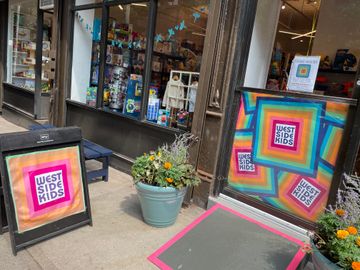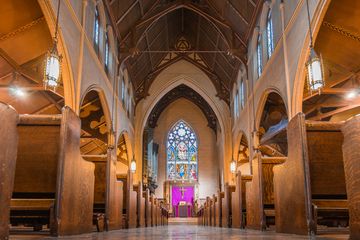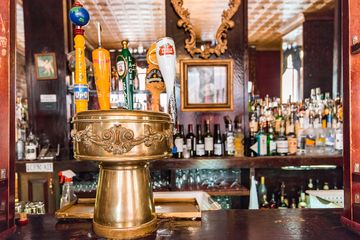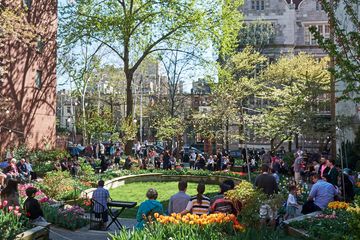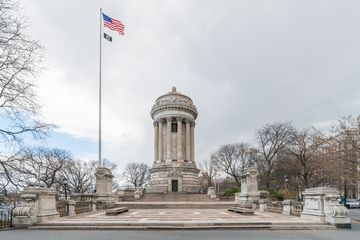With velvet curtains, old art, and gilded mirrors, the Auction House resembles a centuries-old salon. Although regal and classic, I found it to be very approachable. The exposed brick walls – now a common feature of New York City bars – and warm, low lighting makes the space seem more like someone’s living room than a museum. The cozy drape-enclosed rooms attract locals who enjoy huddling around the fireplaces in the cooler months. The bar calls itself a “diamond in the rough, ” a term with which I heartily agree. I spoke to Johnny B. Barounis, who explained that when he first opened the bar in 1993, it was the only one of its kind. Johnny got his start in 1978 working the door at places like the China Club. He prided himself on being “the first person somebody sees on the way in, and the last on the way out. ” After a while, he became tired of the “big, loud, schmaltz-filled nightclubs” and wanted to open a place where people could have conversations and escape the chaos of the city. He opened the Auction House, which earned its name because most of its furniture and art came from the auction houses that Johnny scoured throughout the Northeast. The reproductions of old paintings, especially by Rembrandt and De Goya, fit very well in the space, which, being an old carriage house, has fifteen foot ceilings. As for the furniture, “the turn of the century motif will never go out of style, ” Johnny said while discussing the timelessness of his design choices. At the time, the only real bars were traditional Irish ones, so Johnny was a true innovator in creating something more like a drawing room or a parlor – “a lounge. ” “We were one of the first lounges in the city. Now everyone has a lounge, ” Johnny stated, adding that many policies that are now commonplace were first set into motion by the Auction House. For example, after spending many years running the doors of nightclubs and seeing the damage that people fresh out of college (“In their fifth year of college, ” as he put it) could do, Johnny implemented an over-25-only rule, which was enforced with ID checks at the door. He also did not allow baseball hats: “It’s always the kid with the baseball cap that causes problems. ” As a big animal rights activist, he does not allow fur to be worn in his establishment. The Auction House also has never had any signage. When the lounge first opened, not having a sign was a very risky move. It soon leant the place a sense of mystery and privacy, however, suggesting that patrons of the bar “had to know about it. ” The policy attracted quite a few celebrities, including many SNL cast members. These days, however, many bars opt to have no sign. Johnny suggested that he has considered adding a sign to the auction house, just because the idea of having no marking on a bar has become so mainstream. Johnny is very proud to have been continually running a bar for over twenty years. “In this city, four years is considered a long run. ” More specifically, however, Johnny is happy to have designed a space where people can make connections. “Five different people met their spouse here in our first year, ” he said, proudly. “We’re putting people together. ”
